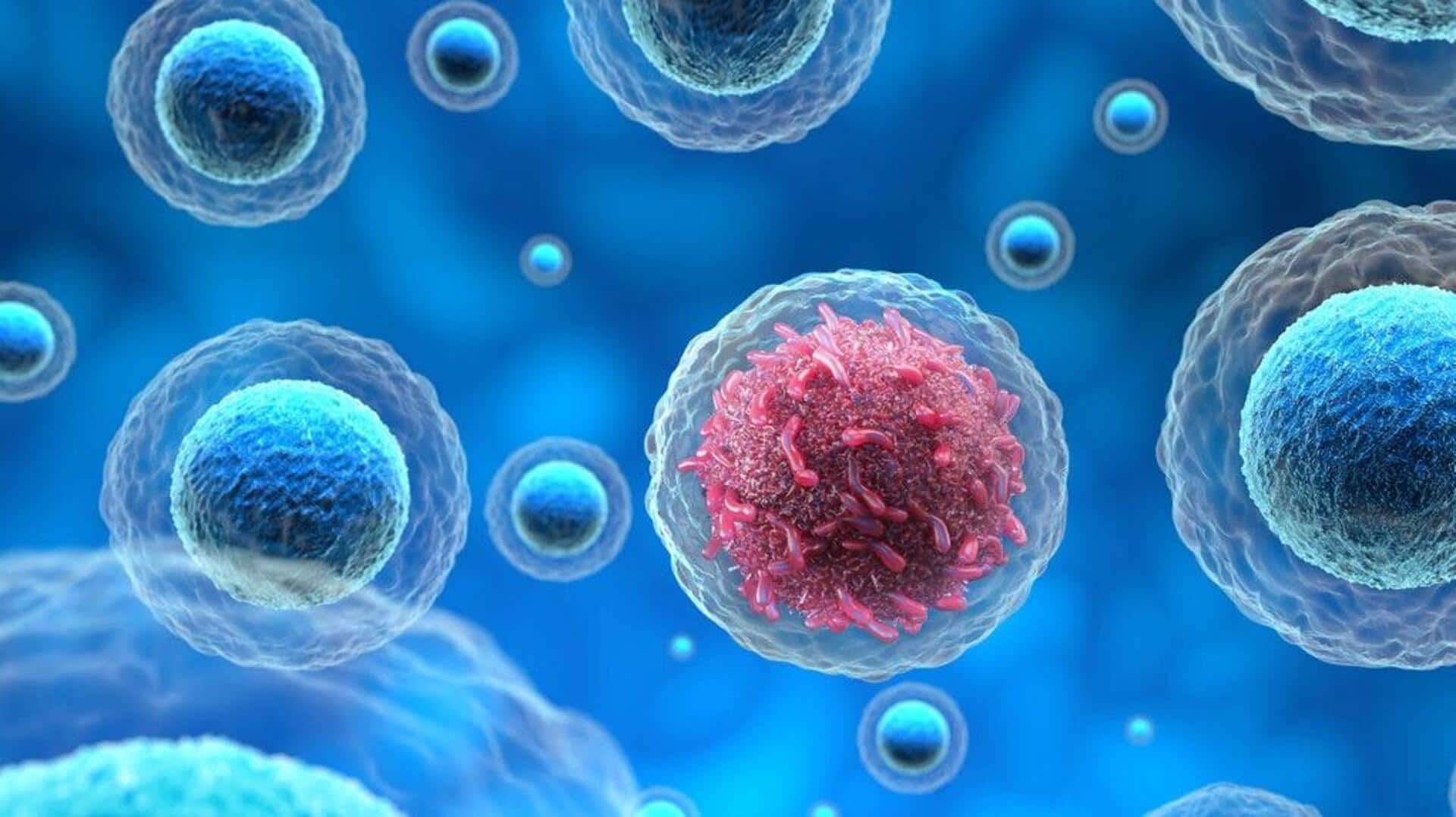
Scientists reveal how small DNA circles fuel cancer growth
What's the story
In a major breakthrough in cancer research, a team of researchers from Stanford Medicine, eDyNAmiC, has found that small DNA circles or extrachromosomal DNA (ecDNA), which were previously thought to be insignificant, are major contributors to various human cancers. Their findings, published in Nature, were based on nearly 15,000 human cancers and introduced a new mode of inheritance that challenges a fundamental law of genetics.
Research team
eDyNAmiC: The team behind the breakthrough
The eDyNAmiC team is an international group of experts led by Professor Paul Mischel. In 2022, the team received a $25 million grant from the Cancer Grand Challenges initiative for their ecDNA research. The initiative is a joint venture between Cancer Research UK and the US National Cancer Institute. Mischel said, "We're in the midst of a completely new understanding of a common and aggressive mechanism that drives cancer."
Cancer connection
ecDNA: A closer look at their role in cancer
ecDNAs are small circles that often carry a few genes on their circular DNA. These genes, called oncogenes, are linked to cancer. When a cancer cell has multiple oncogene-encoding ecDNAs, it can enhance the cell's growth and help it bypass internal checkpoints regulating cell division. Sometimes, ecDNAs can also encode genes for proteins that suppress the immune system's response to developing cancer — further promoting tumor growth.
Study findings
Prevalence and impact of ecDNA in cancer
The first paper, co-authored by Mischel and Professor Howard Chang, examined the prevalence of ecDNA in nearly 15,000 cancer patients across 39 tumor types. The study found that 17.1% of tumors contained ecDNA, which was more prevalent after targeted therapy or cytotoxic treatments such as chemotherapy. The presence of ecDNA was linked to metastasis and poorer overall survival rates.
Inheritance pattern
ecDNA circles and cancer cell division
The second paper, co-authored by Mischel and Chang, studied how ecDNA circles are distributed into daughter cells when cancer cells divide. Unlike chromosomes, ecDNA transcription continues unabated during cell division. Consequently, ecDNAs working together remain interconnected during cell division and segregate together as multi-circle units to daughter cells. This finding challenges Gregor Mendel's rule of independent assortment of genes not physically linked by DNA sequences.
Therapeutic approach
Potential new anti-cancer therapy targeting ecDNA
The third paper reveals that blocking the activity of an important checkpoint protein called CHK1 kills ecDNA-containing tumor cells grown in the lab, and causes tumor regression in mice with a gastric tumor fueled by the DNA circles. The results were promising enough that a CHK1 inhibitor is now in early phase clinical trials for people with certain types of cancers with multiple copies of oncogenes on ecDNAs.